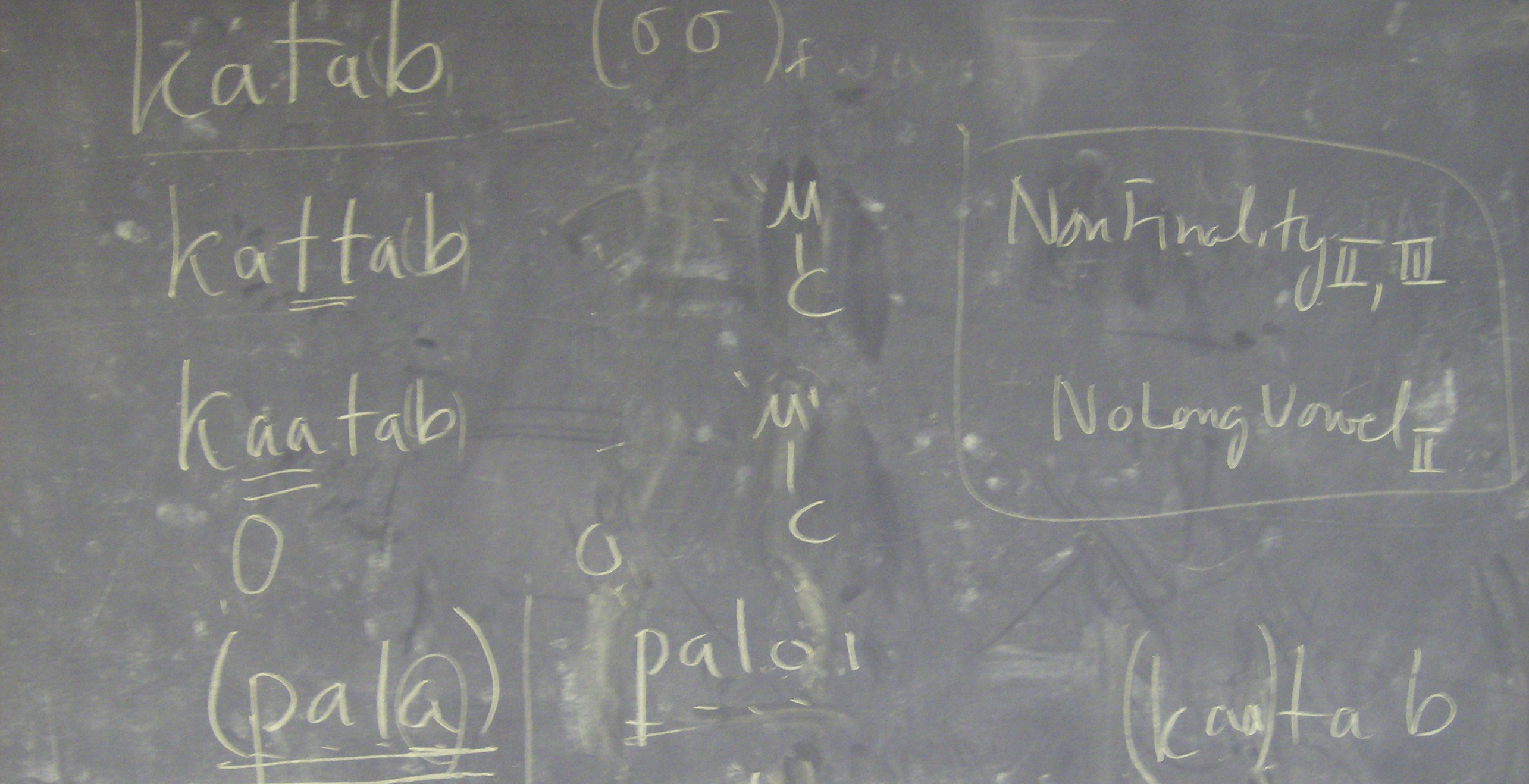Research Interests
Grammar, Memory, and Parsing
How are grammatical representations used in language comprehension and/or production?
I am interested in the ways in which grammatical principles are used by speakers and comprehenders of language in real-time. I use experimental methodologies to determine to when and how linguistic representations play a role in determining behavior in parsing. This involves questioning how linguistic representations are stored in and retrieved from memory, as well as how predictions are made for upcoming structure. In this domain I have been most concerned with the processing of dependencies — relationships between words that hold over a distance.
Theoretical Morphology
What are the primitive units and operations which constitute words?
Much of my theoretical work touches on the internal composition of words — both those that obviously contain multiple parts and those which initially appear un-decomposable. In this domain, the questions which I ask tend to be about the nature of morphological representation (what are the proper primitives of word-formation?) and morphological process (what are the operations which build words? Are they distinct form the operations which build phrases?). Much of my work in this domain has been conducted inside the framework of Distributed Morhology, but I am also interested in delineating the relationship between morphology and phonology using Optimality Theory.
Theoretical Syntax
How are relationships between words represented in the grammar of human languages?
My graduate training was largely in formal syntax, and many questions about the nature of syntactic theory remain present in my work. In this domain I am especially interested in the theoretical nature of agreement and its cross-linguistic typology. I am especially interested in the relationship between agreement and binding as well as agreement and cliticization. My research also touches on the syntactic realization of argument structure and major clausal constituency, especially for Arabic and Maltese.
Neurolinguistics
What are the neural underpinnings of human language?
While the neuroscience of language is not a primary research interest of mine per se, I am interested in the neural underpinnings of many of the phenomena which recur in my research program. Here I am especially interested in the electro- and magnetoencephalographic correlates of syntactic parsing of agreement and long-distance dependencies. This often takes the form of examinations of properties which influence the component known as the P600.
Arabic Linguistics
لا شيءَ معي … إلّا كلِماتْ — نزار قباني
The empirical focus of my research is typically English (my native language) and Arabic (a language I have studied since 2003) and Maltese. I am an active member of the Arabic Linguistics Society and am generally always keen to raise the visibility of Arabic and Maltese in the generative linguistics and psycholinguistics research communities. I am also very keen on collaborating with Arab and Maltese linguists in order to forge links between American and Arabic/Maltese research groups.
Open-Access, Reproducible Research
Replication is the best statistic. — Steve Hillyard
I also believe that science is meant to be personally verifiable and that scientific consensus is built on freely available, reproducible research. To that end I am readily willing to share field notes from formal linguistic research and all of my worthwhile experimental data and code is available on my github site. All of my preprocessing, data analysis, and writing is done in freely available software suites, where possible (e.g., R, Python), to allow other researchers to exactly recreate the processes which resulted in my conclusions. If you are interested in material from my research that I have not made public, please do not hesitate to contact me.
